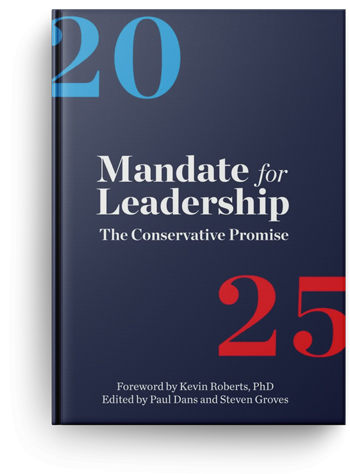
September 24, 2024 — At this year’s convention, PEF President Wayne Spence spoke about the importance of being educated before going to the voting booth this November and wanted the union to do its part to educate delegates. As part of that effort, President Spence and Vice President Randi DiAntonio held a discussion on Project 2025.
To lead the discussion with delegates, President Spence and Vice President DiAntonio invited the Vice President for Campaigns & Outreach at the Center for American Progress, Joe Radosevich, to discuss Project 2025 and its potential effect on PEF and other unions across the nation. The Center for American Progress is a non-partisan think tank based in Washington, D.C.
“As public employees, politics and public policy effect every single aspect of our working lives and effect our family life,” said Vice President DiAntonio. “And Project 2025, while a 900-page document, has almost 50 pages dedicated to the impact that this will have policy-wise on organized labor.”
Radosevich made sure to emphasize that this was not a discussion around partisan politics, but rather a discussion around the policies and procedures highlighted in the document. Additionally, Radosevich focused on the founders and funders of the project, such as the Freedom Foundation, which is also behind the anti-union postal and email campaigns aimed at getting PEF members to drop their union membership.
A document, or plan like Project 2025, according to Radosevich, is not atypical during any election season. Presidents, Governors and other elected officials often have plans to prepare themselves for the first 100 days and for the transition of government. But that is exactly why, Radosevich said, the document and its plans should be taken seriously.
“Sometimes we hear that this has been going on for the last 40 years to prepare for a new administration, and that’s true,” said Radosevich. “In 2018, President Trump enacted about two-thirds of the policies in the last mandate for leadership.”
Radosevich explained that while some Americans on either side of the political spectrum may have things they like and do not like about Project 2025, according to his organization’s research, most do not like the plan overall.
Research from American Progress showed that some Americans do support some policies, like ending FBI independence or allowing the President to have oversight over the Department of Justice. However, many of those same policies would directly impact unions and work against PEF’s priorities.
Project 2025 seeks to use an executive order that would classify federal employees as schedule F, which would exempt them from being protected by civil service rules and could result in the firing of thousands of employees. PEF’s policy is in direct contradiction to that.
“PEF will monitor and oppose the use of hiring practices designed to skirt civil service law and which are inherently subjective, such as the Selective Certification Hiring and Promotional process,” PEF’s policy reads. “So as to prevent these processes from negatively impacting the promotional potential for our members.”
Thankfully, Radosevich said, American Progress’ research shows most Americans are opposed to changes in the civil service system. About 79% do not want public service employees to be fired and replaced with staff loyal to the President.
Other anti-union agenda items in Project 2025 include allowing states to repeal national overtime and minimum wage laws and allowing states to ban labor unions and weaken the National Labor Relations Act and National Labor Relations Board.
After the presentation, Radosevich, DiAntonio and PEF Legislative Director Patrick Lyons, opened the floor to questions. Delegates engaged in conversations around their concerns around the project’s plans to increase the Social Security age, negatively impact apprenticeship programs, and even CDC monitoring of reproductive health activity.
Each delegate was given a document that outlines PEF’s positions on these and other labor issues alongside a comparison of Project 2025’s plan.

